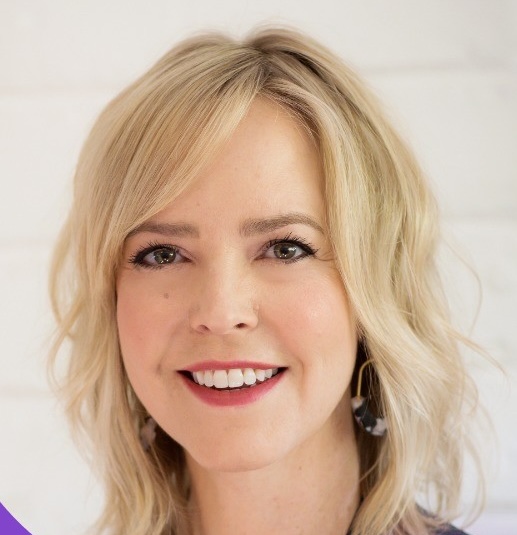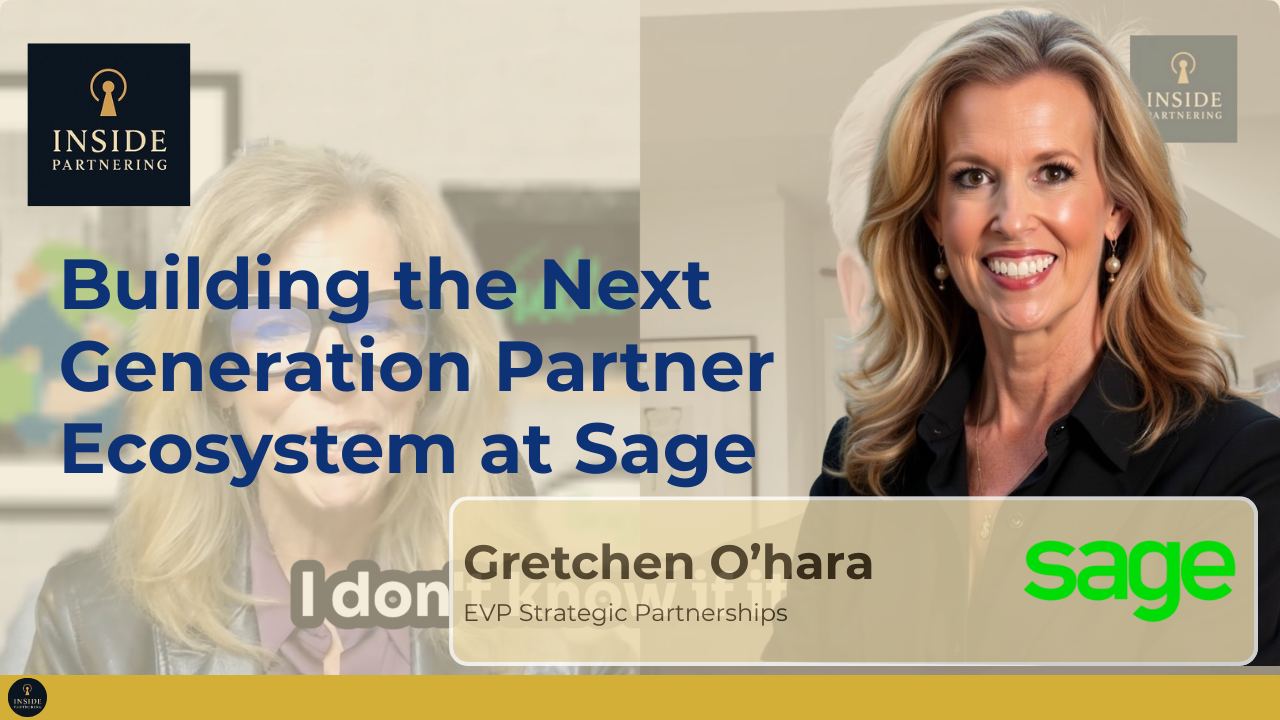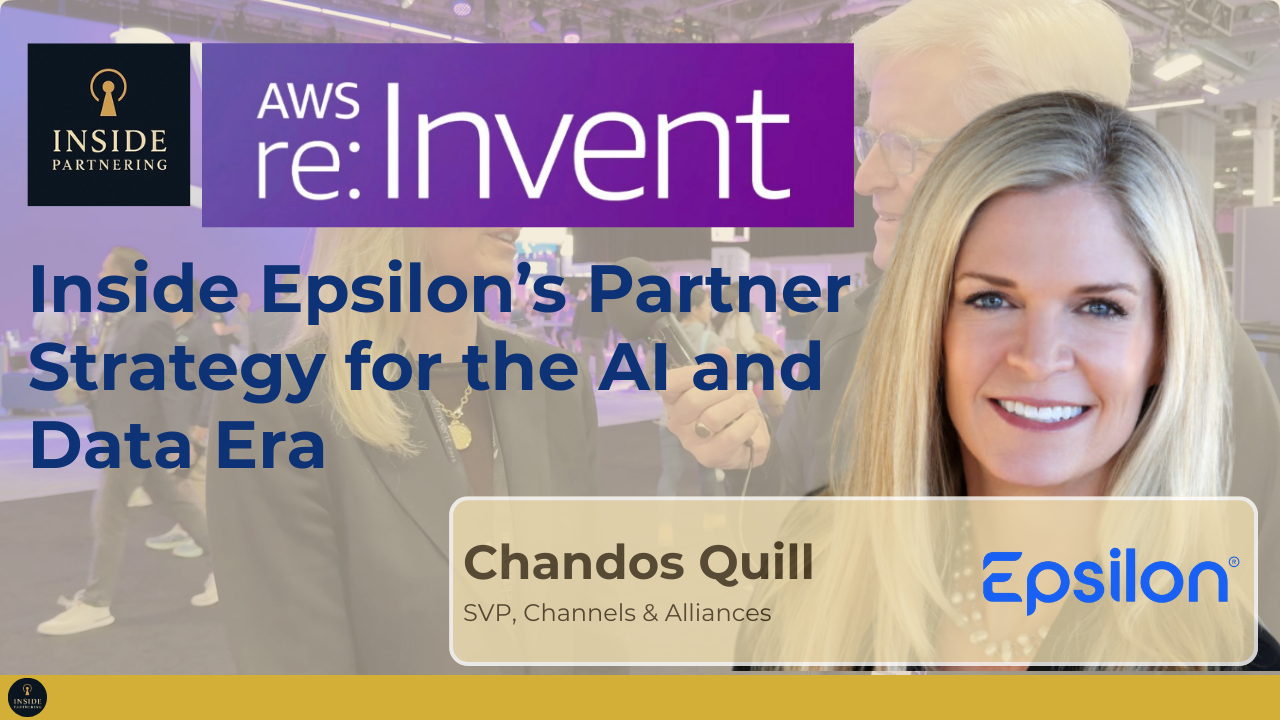Episode Overview
“Partners Aren’t Just Part of the Strategy—They Shape the Product.”
Had an incredible conversation with Maureen Little, SVP of Partnerships & Ecosystem at Writer, live at Supernode in San Diego—and her insights into ecosystem strategy were powerful, practical, and inspiring.
With a background that spans product, corp dev, and strategic alliances, Maureen brings a unique lens to partnership leadership—connecting the dots between tech integration, customer value, and go-to-market success. At Writer, she’s leveraging that experience to build partnerships that aren’t just channels—they’re core to how the product evolves and scales.
A few standout insights from our conversation:
- Partner experience is product experience. From single sign-on to complex security workflows, partners must be treated like customers—because they are. Maureen shared how Writer’s product and engineering teams build for partners, with deep integration and usability in mind.
- Influence is earned through data and alignment. In her Supernode session, Maureen outlined a clear framework for partner professionals to earn internal buy-in. Hint: gut instincts don’t get budget—data, alignment, and clear commitments do.
- Ecosystem is about how customers buy, not how vendors want to sell. Whether through GSIs, MSPs, or integration partners, the best strategies start with the customer journey—and partnerships that support that journey end-to-end.
As Maureen put it: “There’s no one-size-fits-all in security—or in partnerships. The value comes from the voices of those closest to the customer.”
Thank you, Maureen, for the thoughtful and engaging conversation—and for continuing to elevate what it means to lead in partnerships.
#Supernode2023 #EcosystemLedGrowth #Partnerships #GoToMarket #PartnerStrategy #Writer #CoSell #ProductIntegration #StrategicAlliances #PartnerExperience #Crossbeam
Podcast
Guest

Maureen Little
Technology executive with a relentless passion for building global teams, closing revenue-driving partnerships and launching new products.
Episode Transcript
Chip Rodgers 0:00
Hey, welcome back everyone. Chip Rodgers with works man and we are here again at the in the right outside the keynote at supernode and in San Diego. It's fantastic to be here. Been a great day and a half and other other day and a half to go. I'm excited to be here with Maureen, little Maureen, welcome, Hello, yeah, for sure, Maureen is Vice President of Global Strategic Alliances for Okta. Big job. Okta is a is just a phenomenal, you know, hugely successful, a lot of partners and and so tell me. Let's start with just a little bit of sort of the scope of your role and the kind of partners that you are managing,
Maureen Little 0:45
sure. So specifically, I own our GSIs, our cloud service providers, we are growing into the MSP market, and so anything you know that is a strategic global partner. I have an amazing team, and we are out there supporting our customers and our sellers. So
Chip Rodgers 1:05
a lot of, a lot of value that GSIs would have working with Okta and bringing, you know, bringing that technology to their to their customers, to, let's start at, sort of at the highest level. What are the the when you think about sort of okta's, you know, partnering strategy. How do you define that? How does Okta define that? Yeah,
Maureen Little 1:26
well, I think what we Okta was sort of a category creator which has has some benefits, but also is a little bit hard, which means there were other companies who had some of the technology that we had, and they had large channels. So when we first came out with modern identity and moved beyond what was available, we had to kind of go and find unique partners. So it's an integration company at its core. So building an integration network was sort of the number one, biggest priority. But systems integrators are also critical, because now it goes beyond its its identity is such a big part of someone's security infrastructure now, so when we think about the global size, we're part of, yes, an identity practice, but we're also part of security offerings that they bring to their customers, Both in assessment all the way to deployments and what we're also seeing is that as security gets more and more difficult, you're seeing customers needs change. You're going to see them leveraging MSPs. And mssps, there is an extra s in that on purpose security, you got it, you got it. And so our philosophy is, how does our customer want to buy? How? Who are they going to for advisory? And how do they want to deploy Okta
Chip Rodgers 2:49
and so? So partners are a key part of all of that.
Maureen Little 2:53
Absolutely, yeah, they are. They're a huge part of it. The other thing is, is we're also a very large direct sales organization. We have, obviously, our own professional services team. That's amazing, because we are trying to evolve what was the more traditional on prem version of identity, but partners are critical. You You have everything from a deep integration network that makes the products that you're leveraging seamless so that that's actually where I started, when I joined Okta, yeah, I started in the corp dev team, running technology partners, and it's been such an amazing shift over to listen to kind of customer advocates and these champions at these GSIs who have been solving huge, huge security problems for many, many years. So it's a shift. But what's great is I'm able to take those ISV, those tech partners, and bring them into this new role, and make sure that we're connecting the dots. Because security isn't one thing. There is no no matter what they say, there is no one size or one product fits all. It's really sitting and thinking about that customer need. Yeah,
Chip Rodgers 3:57
well, and security is such a critical and has just continued. I was at RSA, you know, last month, and it just, I mean, the the energy and the vibrancy, there so many new, you know, players actually cool. Now, did you know? Did you know this? I didn't I, I'm hearing it cool. So what a great so now that you're running strategic alliances, having that background in the technology partners. So really interesting background in your current role, knowing a lot of sort of, how those things get put together, how to how does the technology fit together, what the value propositions are and things like that. Well,
Maureen Little 4:36
the other thing that's interesting is I built phenomenal relationships. We have an amazing product and engineering organization. And I find that a lot of companies, they sort of put up walls. You know, revenue has this wall and Product Engineering has this wall, partnerships and and there's something wonderful about starting within corp dev, where we built brand new routes to market, we incubated them inside corp dev, and we do product partnerships and D. Integrations, because the product organization doesn't just want to hear from customers. They want to hear from those systems integrators that are in their day to day. What's easy? What? What would you like to see, everything from the console to the tools to set up a product? And man, it's you know, you don't want to walk in there assuming that the partner doesn't have a voice. The partner has a pretty phenomenal voice, and they can make us more efficient in what we build. So I'm very lucky. Our product and engineering organization was excited that I moved over. I'm able to start to bring those concepts and ideas I'm hearing also, you know, I hate to say but Okta does have some competitors, and so some of those GSIs, they've been doing this at scale for years before Okta even came on board. So they can be visionaries for us. They can give us watch outs, so it's a huge value to us and then. But most importantly, they're coming and saying, well, a customer is stuck. Customers are stuck with this and this, right? So it's important to keep them very close. Keep
Chip Rodgers 6:04
them close and and I can see, as you were talking, I, you know, I'm thinking about how, you know, Okta has to think in, even in the product roadmap, how to how, not only to address your customers, but how to make it easy and consumable for your partners as well,
Maureen Little 6:19
well. And that's the beautiful thing. So with our workforce product, we have two product lines. One is about consumer. You know that login experience you have in an E commerce or a loyalty app that you're in on the workforce side, our product organization actually builds for partners, you know? And that, how do so? How do our partners integrate. What's that integration experience? We have a workflows product which we want people to build their own workflows. Well, what's that experience? So partners are really a critical pillar
Chip Rodgers 6:50
to our success, because they're, in a way, a customer as well. They absolutely are, because integrations.
Maureen Little 6:53
I mean, if you just start with baseline, single sign on, don't you want to log in and have everything kind of work? So that's your baseline. That experience, you know, is something that our product engineering organization have to think about all the way to the customer, and then they also have to think about the employee experience, that person logging in. So it's so again, they are absolutely building for partners. They are taking great feedback. And then when you think of the growth that we're going to have next with that MSP market, the tools and the products, everything from reporting to dashboards to, you know, security features. You know, in an MSP model, you start to hand that over to someone else, right? So just watching their innovation and how they're diving in and thinking about that has been amazing to watch.
Chip Rodgers 7:43
That's fantastic. So, Maureen, you had a session earlier today at supernode here, and it was all about,
Maureen Little 7:51
no one showed up. No one showed up. It was I was crying. It's bad.
Chip Rodgers 7:56
I don't believe you. So it was about influencing and and getting your organization sort of oriented around, around partnering and partner motions to tell us the sort of the top bullet points of what you talked about today. Well,
Maureen Little 8:13
I think that there's kind of a misnomer. So the first thing we started with was, Do people actually believe they have the right to influence? And that's a really important thing. I think more junior people or partnership organizations, where maybe partnering is only a smaller percentage of the revenue, there's this story that people have that it's actually I don't know how to influence. Maybe I don't I'm not technical enough, or I'm not the finance person. I can't build a business model. So it was the first thing is that we just started tackling that a little bit, and we said, actually, there's a formula. The formula is about identify the audience. Who are the people that you're going to have to bring in along with you in this new initiative or this new partnership launch? Right? Figure out what matters, who's there. Make sure you're pulling in the right data, right? The right level of data. Don't just go out with a hunch. You will not influence executives, especially at bigger companies, as much as hunch I've tried, I keep telling people my gut is like a crystal ball, but no one, no one wants to believe no one wants to believe me. You know, then you then we talked a little bit about, how do you so pulling that data into an actual action plan, and we kind of mapped out, how do you start to present this in, inside the team? You start with your team, and then you start getting out to the executives, and then the big thing at the end is, really, did you get the commitment? And I think a lot of people this is, we were sort of joking about it, but it is true. I think a lot of people leave a meeting and they got head nods, or great work. I love that. I didn't know that. They leave that meeting and they're like victory lap. What real commitment looks like is investment head count, actual budget for software, maybe even a consulting firm, if it's a very big thing. So what does commitment mean? And commitment should be the thing that you've gotten that will allow that to. Initiative that you've actually
Chip Rodgers 10:01
happened. Yeah, that's terrific, Maureen, thank you so much for taking, taking some time here and and sharing your sharing your thoughts. And this has been fantastic. We appreciate so much. Thank you. Thank you, Maureen, and thank you all for joining, and we will see you later today. Thanks everybody. I need.

Chip Rodgers
🚀 CMO | Chief Partner Officer | B2B SaaS Growth & GTM Leader | Ecosystem Strategy | Demand Gen | Podcast Host 🎙


.png)

